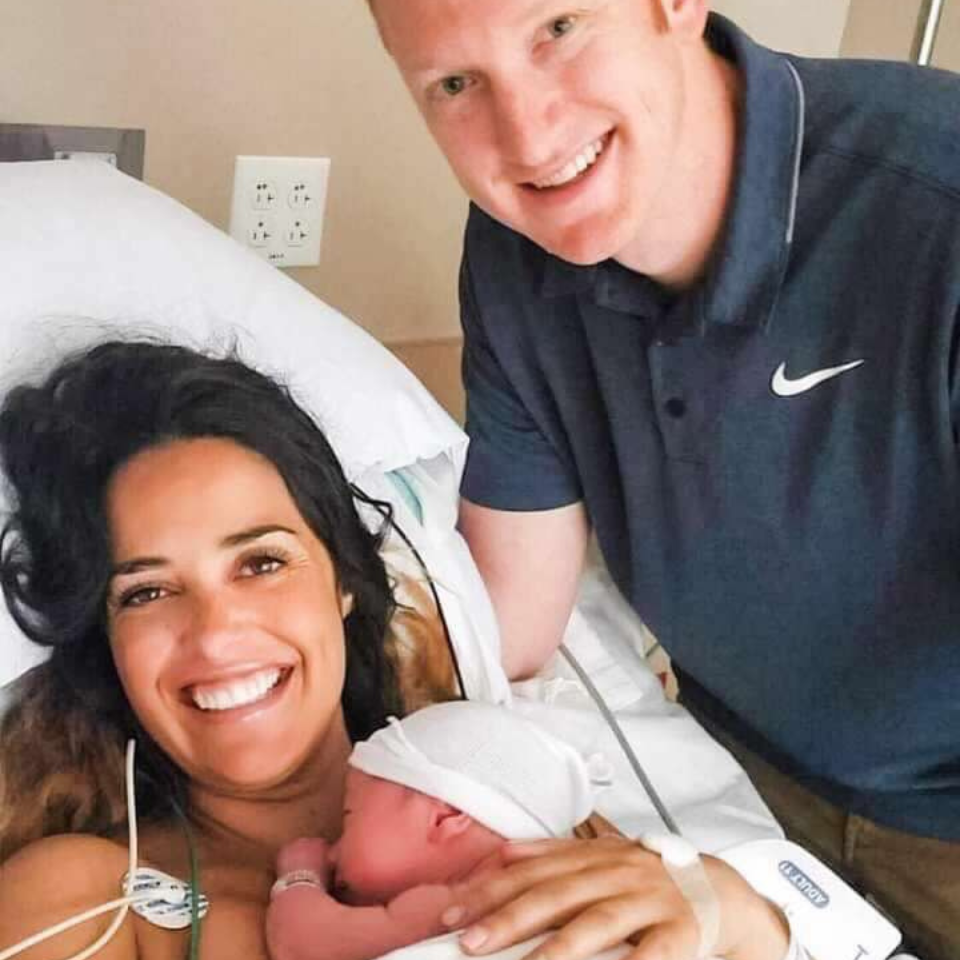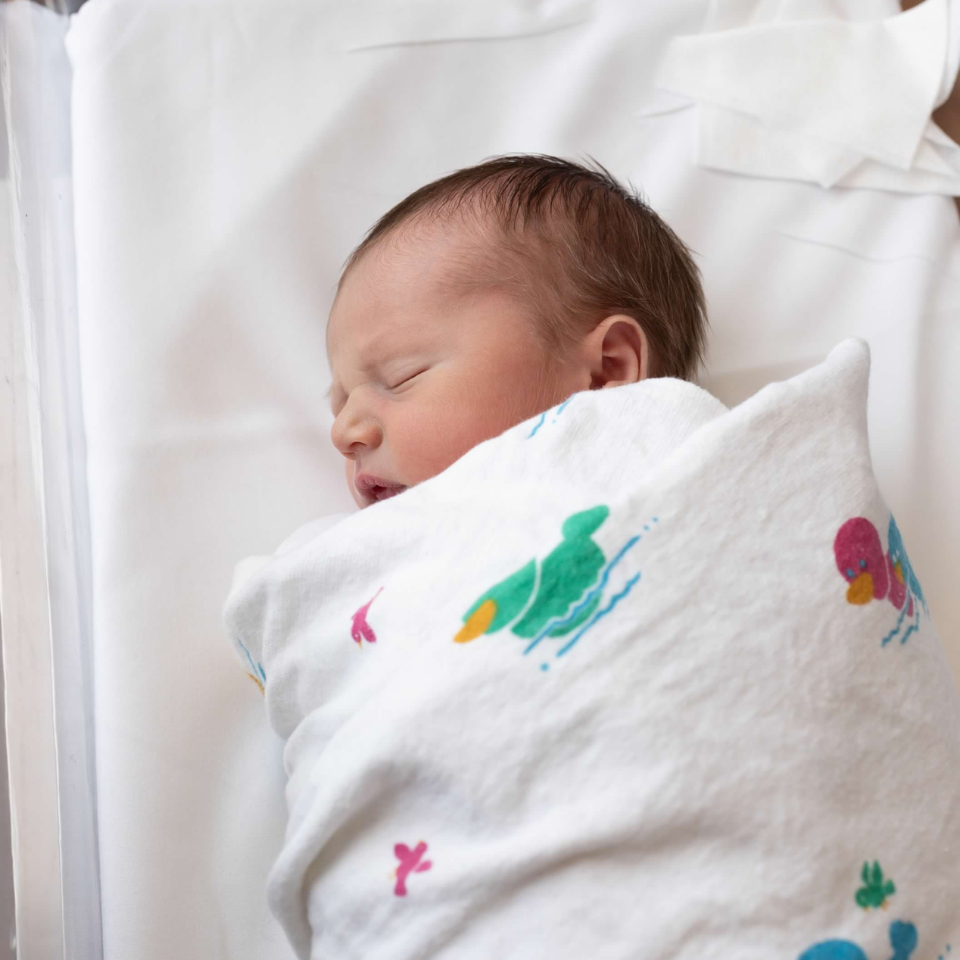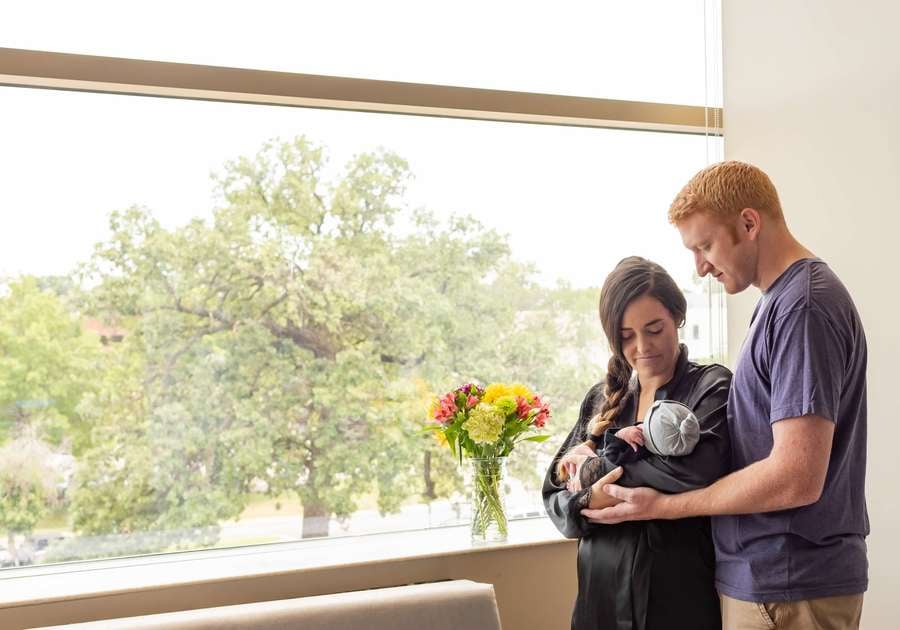It was July 2019, and we were eagerly anticipating the arrival of our first child. With a due date set for 07/25/19, we were getting closer to the big day. At our 37-week check-up, we were unexpectedly sent to the hospital for further observation. Despite not feeling well myself, I simply mentioned feeling uncomfortable when asked. I had been experiencing chest pains for about a week, but I brushed it off as heartburn or the baby’s position in my ribs. Being a first-time mom, I assumed these were typical pregnancy symptoms. In that moment, our main focus was on little Liam.
At that 37-week appointment, our doctor detected an irregular heartbeat rhythm. That day, we spent several hours at the hospital undergoing tests such as monitoring blood pressure, contraction activity, baby's heart rate, and blood pressure. We also had a sonogram and consulted with specialists who advised planning for induction at 39 weeks due to Premature Atrial Contractions (PAC). Even though his heart was beating irregularly, they assured us it was not consistently off and considered benign. They reassured us that this condition is common and often resolves on its own, possibly before birth, but if not, the pediatrician would monitor it and may refer us to a pediatric cardiologist in the future.
 |
Nobody appeared overly worried, and we were sent home. We were told, "A representative from the OBGYN's office will reach out to arrange an induction plan at 39 weeks. Return if fetal movements decrease." Receiving news about your baby's heart condition, followed by reassurance not to worry, is a lot easier said than done! Throughout my pregnancy, I hadn't been monitoring kick counts, but I decided to start now for some reassurance. Testing a few kick counter apps, the numbers were promising on Friday and Saturday. Unfortunately, by Sunday, things took a turn. Our OBGYN mentioned that for less active babies, 3 kicks in an hour are still considered acceptable. However, I could only note 4 kicks in 2 hours, which concerned me. My chest pain was worsening, and it intensified when I took deep breaths or laid down.
On Monday, I reached out to move my 38-week appointment up as it was scheduled for Friday. I felt silly calling, especially if they ended up saying it was just heartburn or his feet are in your ribs, etc. But I needed some reassurance regarding my baby's well-being, especially since kick counts had decreased. After speaking with my doctors office, I was advised to go to the hospital as my doctor was there for the day. We arrived at the hospital and were assigned the same triage nurse as last week. They ran some tests and conducted a biophysical assessment of the baby. Due to the baby's irregular heartbeat, the results of the stress test were hard to interpret but my blood work revealed issues with my organs. Apart from a low platelet count, my liver and kidneys were failing. It turned out to be HELLP Syndrome.
It came on suddenly without the usual symptoms. Although rare, it's more common in individuals with Preeclampsia and is typically identified earlier in pregnancy. The medical team closely monitored me throughout Monday, administering IV medications due to concerns about potential seizures. I was placed on strict bed rest, allowed only ice chips and water, with dimmed lights, limited phone/TV use, and little noise. After two different attempts to ripen my cervix, neither were successful. Since labor didn't start naturally and my condition worsened, an emergency c-section became the only viable option.
Around 10:30 am on Tuesday, the cesarean section began. I was given general anesthesia as I would be unconscious during the procedure. My husband Eric had to sit and wait in the hallway - hoping everything would be okay. Liam was born at 11:04 am, and once given the all-clear, Eric was able to hold him and give him a bottle. About two hours later, the anesthesia wore off and I was able to be reunited with my husband and meet our precious son.
 |  |
Although we were informed that it is uncommon, after sharing my story, I have come across more people discussing their encounters with HELLP syndrome. I ended up being in the hospital for about a week, as it took my body some time to get back into the normal range for various levels. We were lucky that I only developed it later in my pregnancy and that we managed to avoid a NICU stay. Sadly, not everyone is as fortunate. [Trigger Warning] I've heard from people who unfortunately lost their babies due to having HELLP so early in their pregnancy that life was not sustainable after birth, as that is pretty much the only way to get rid of HELLP. I also know people whose baby had to stay in the NICU for quite some time due to being born prematurely.
More About HELLP Syndrome:
HELLP syndrome is a severe health issue that pregnant women can face. It can lead to complications such as high blood pressure, liver malfunction, organ disfunction, hemorrhage, extreme fatigue, and blood-related issues like clotting problems or excessive bleeding. HELLP is an acronym that stands for:
- (H) Hemolysis, or a breakdown of red blood cells, leaving fewer red blood cells to carry oxygen to organs throughout the body
- (EL) Elevated liver enzymes, typically a sign of liver malfunction
- (LP) Low platelet levels, which indicate bleeding problems, as platelets help with clotting
According to research, HELLP syndrome results in up to a 24% fatality rate for pregnant women and up to 34% for babies. In most cases, it’s recommended that pregnant women with HELLP syndrome deliver their babies to alleviate symptoms, as the condition typically goes away after delivery.
Although statistics vary based upon source, most still agree that HELLP is very rare. While Yale reports that fewer than 1% of all pregnant women experience HELLP syndrome, the other say "among pregnant women in the United States, 5 to 8% develop preeclampsia; 15% of these develop HELLP syndrome. This mean approximately 45,000 women per year will develop HELLP syndrome in the United States."
Sources:
- Yale Medicine. (2023, July 24). Hellp syndrome. Yale Medicine.
- Website. (n.d.). Preeclampsia - hellp syndrome. Preeclampsia Foundation - Saving mothers and babies from preeclampsia.



